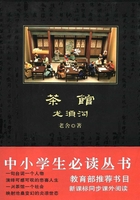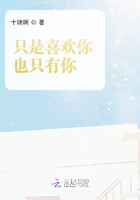I am my mother’s third child, born when she was 20. When I was delivered①, nurses took me from the room before she could see me. Her doctor gently explained that my left arm was missing, below the elbow. Then he gave her some advice: “Don’t treat her differently than the other girls. Demand more.” And she did.
Even before my father left us, my mother had to go back to work to support our family. There were five of us girls in our Modesto, California, home, and we all had to help out. Once when I was about seven, I came out of the kitchen, whining, “Mom, I can’t peel potatoes. I only have one hand.”
Mom never looked up from sewing②. “You get yourself into that kitchen and peel those potatoes,” she told me. “And don’t use that as an excuse for anything again!”
Of course I could peel potatoes with my good hand—while holding them down with my other arm. There was always a way, and Mom knew it. “If you try hard enough,” she’d say, “you can do anything.”
In second grade, our teacher lined up my class on the playground and had each of us race across the monkey bars, swing from one high rod to the next. When it was my turn, I shook my head. Some kids behind me laughed. I went home crying.
That night I told Mom about it. She hugged me, and I saw her “we’ll see about that” look. When she got off work the next afternoon, she took me back to school. At the deserted playground, Mom looked carefully at the bars.
“Now, pull up with your right arm.” she advised. She stood by as I struggled to lift myself with my right hand until I could hook the bar with my other elbow. Day after day we practiced, and she praised me for every rung1 I reached.
I’ll never forget the next time my class lined up at the monkey bars. Crossing the rungs, I looked down at the kids who’d made fun of me. Now they were standing with their mouths open.
It was that way with everything: instead of doing things for me, or excusing me, my mother insisted I find a way to do them myself. At times I resented③ her. She doesn’t know what it’s like, I thought. She doesn’t care how hard it is. But one night, after a dance at my new junior high, I lay in bed sobbing. I could hear Mom come into my room.
“What’s the matter?” she asked gently.
“Mom,” I answered, weeping, “none of the boys would dance with me because of my arm.”
For a long time I didn’t hear anything. Then she said, “Oh, honey, someday you’ll be beating those boys off with a bat. You’ll see.” Her voice was faint and cracking. I peeked out from my covers to see tears running down her cheeks. Then I knew how much she suffered on my behalf. She had never let me see her tears, though, because she didn’t want me to feel sorry for myself.
Later, I married the first guy I thought accepted me. But he turned out to be immature and irresponsible. When my daughter Jessica was born, I wanted to protect her from my unhappy marriage, and I broke free.















